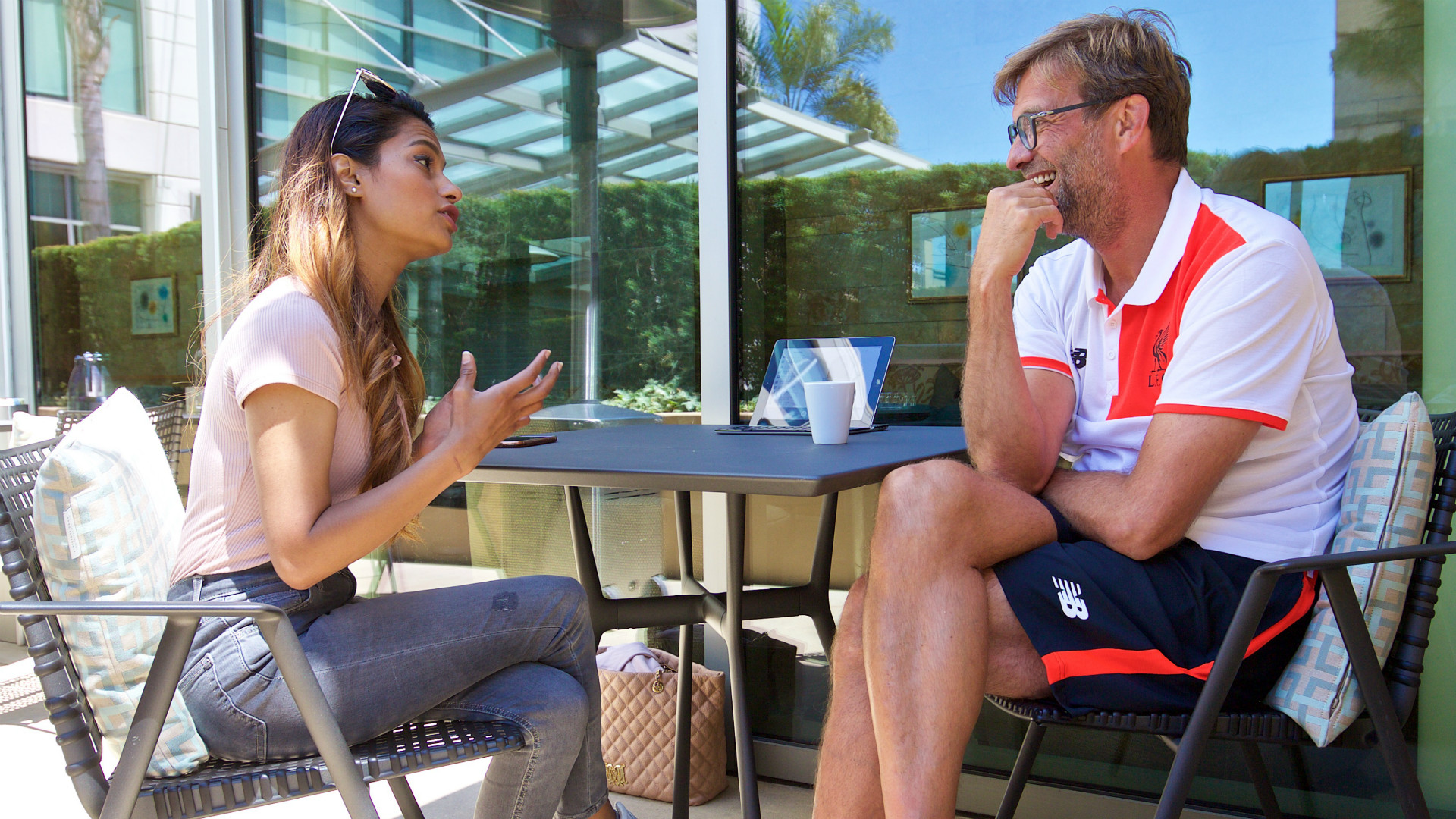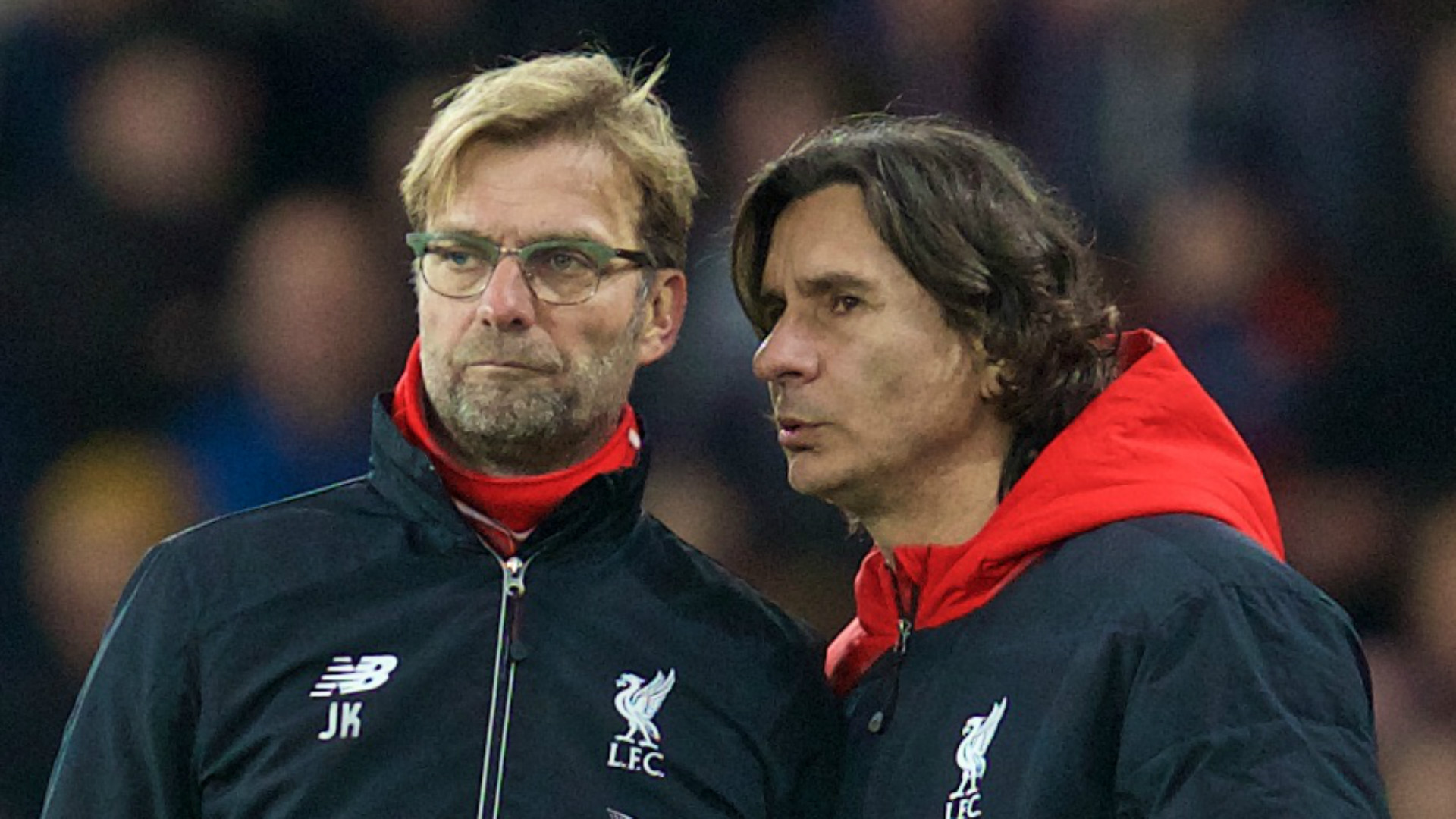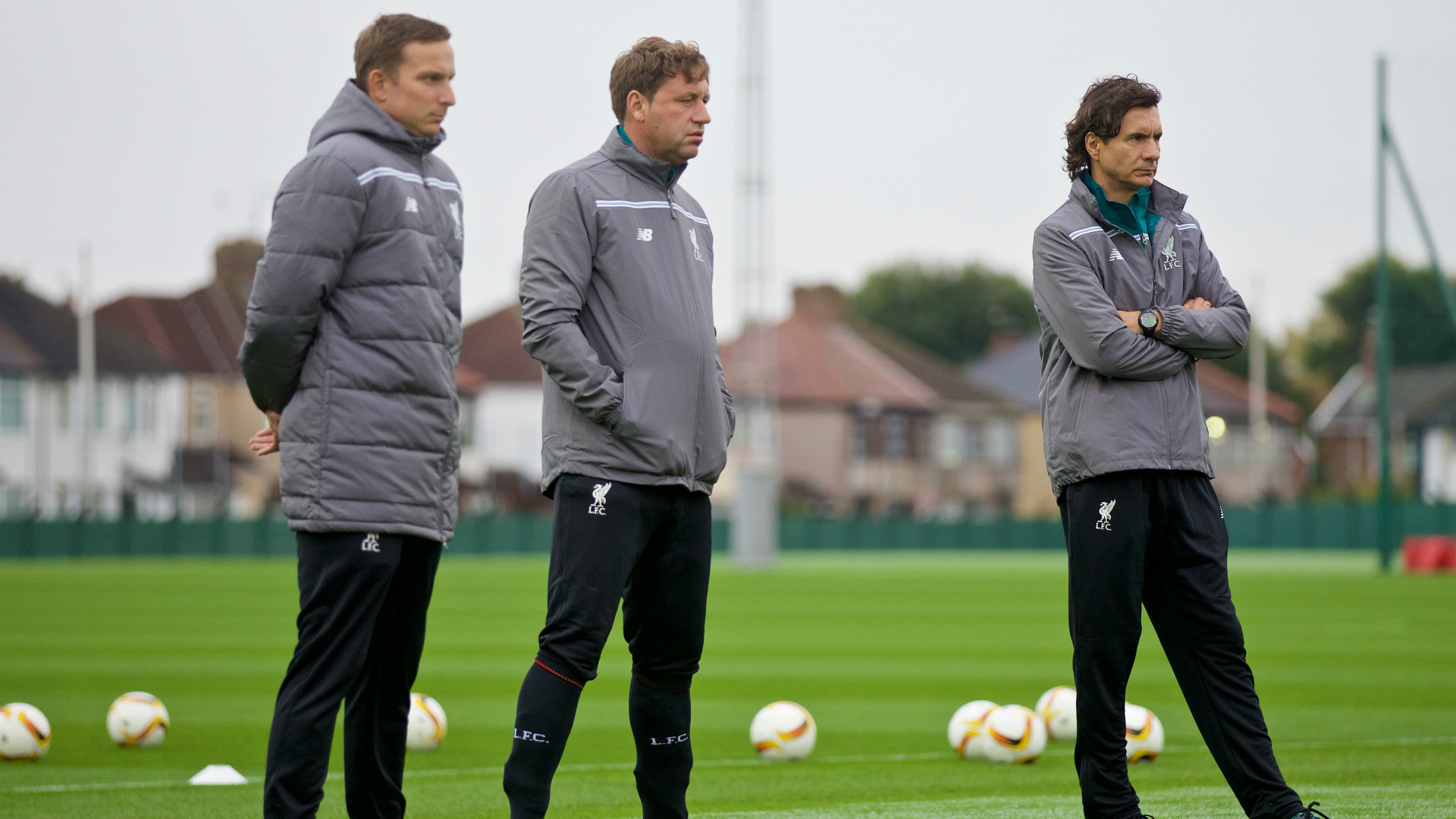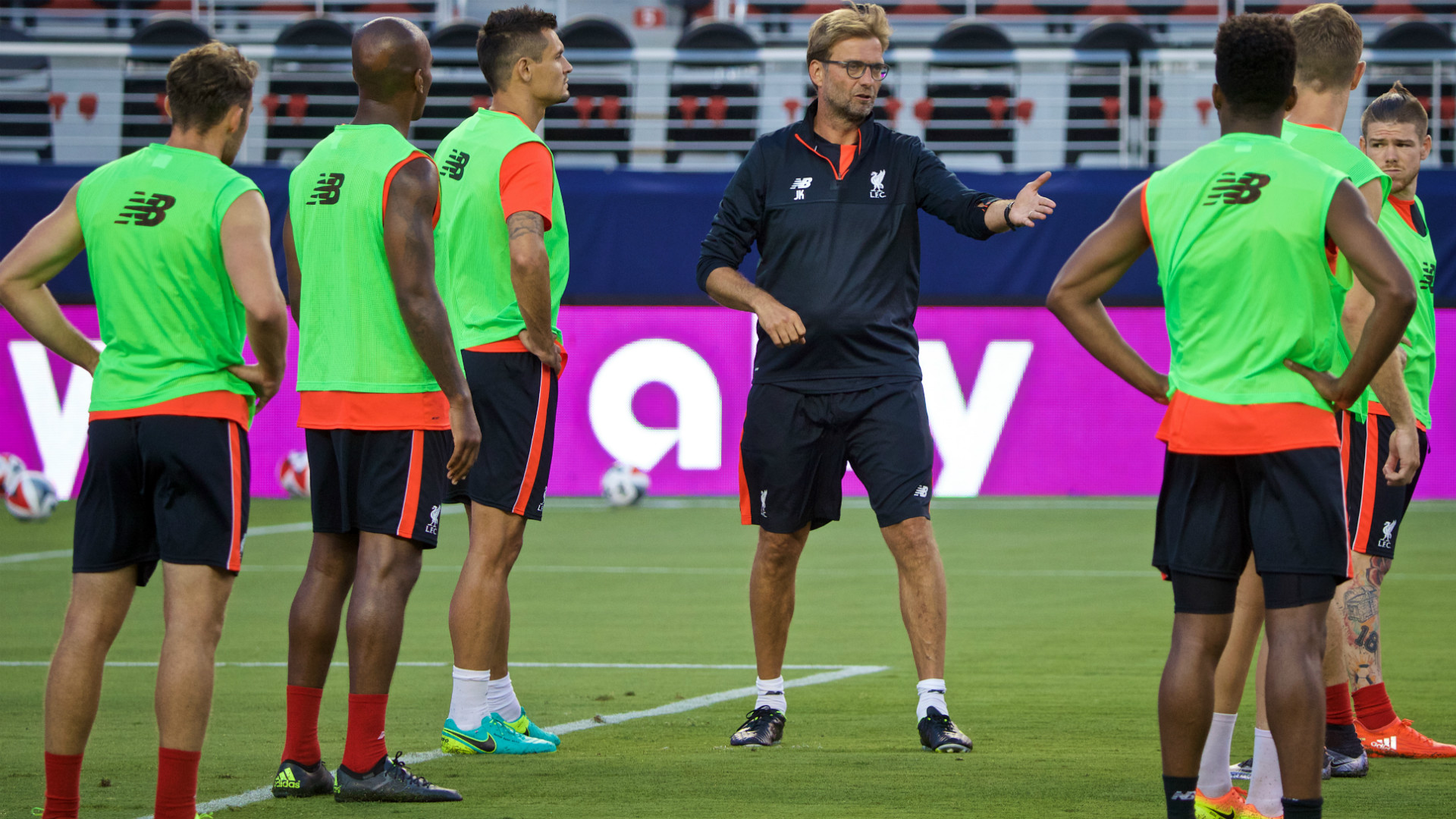The Reds manager visited England on a small budget
during his youth, but he now has the sizeable task of reinvigorating one
of its most successful clubs
 EXCLUSIVE
EXCLUSIVEThere was a time when Jurgen Klopp, shaded from the searing California sun on the terrace of the palatial Four Seasons in East Palo Alto, was bowled over by the offer of bed and breakfast in England for £5.
Long before his breakthrough in professional football, something he imagined fanciful rather than actually possible, the 49-year-old explored the country via rail, securing free hostel accommodation by tidying his dormitory. Every so often, he’d part with a fiver to sample a ‘full English’ in the morning after spending a night in budget accommodation.
With a small bank balance, but a sizeable interest in the people and the language, Klopp was easily captivated. He travelled around for a month and concluded that in future, he wanted to survey England as a resident. “I couldn’t afford football tickets, but I bought an inter-rail card and travelled around for four weeks,” the Liverpool manager told Goal in an exclusive interview.
 “What I loved most was the opportunity to have £5 bed and breakfast.
Sometimes I slept in youth hostels, which was very funny. When I went
in, they said ‘you have to clean the room’ and I thought they were
crazy. But they said if you did it, you could sleep for free, so that
was okay.
“What I loved most was the opportunity to have £5 bed and breakfast.
Sometimes I slept in youth hostels, which was very funny. When I went
in, they said ‘you have to clean the room’ and I thought they were
crazy. But they said if you did it, you could sleep for free, so that
was okay.“It was a lovely time, of course the weather was not too good, but I love this country. I even loved the language, it didn’t seem too difficult, and I was interested in meeting new people and learning their ways. I always knew I wanted to live here if it was possible.
“Life took me a few places and gave me a few jobs. It wasn’t about where I could be, but about doing what I had to do, because I was a young father and needed to provide and all these kind of things.
“When I became a manager, it was clear that if there was a good opportunity in this country, to go for it. Now I’m here, it’s a very big honour and really I enjoy it.”
Klopp may have traded the discount digs for grandiose hotels, but his proclivity to absorb as much as possible remains. The German is still sharpening his knowledge on a daily basis as he continues his reconstruction of Liverpool, especially with the wisdom of those helping him reshape the Anfield outfit.
It has been evident during the club’s pre-season tour of the United States that the magnetic trainer, while enjoying complete control, counts on the expertise of his backroom team. He may be blockbuster, but it’s certainly not the Jurgen Klopp show at Liverpool, where collective responsibility extends beyond the players.
A snapshot of how training is conducted provides one such example. Andreas Kornmayer, the new head of fitness, leads the stretching and aerobic exercises while Pep Lijnders, the first-team development coach, oversees the passing drills. Zeljko Buvac comes into his own once tactical disciplines are introduced, which is also when Klopp switches into full-on teacher mode.
Peter Krawietz observes every little detail and steps in when he notices the habitual making of an error, while the goalkeepers work separately with John Achterberg at the start. The reliance continues through to the medical staff, performance analysts, nutritionist Mona Nemmer, and everyone else assisting with the first-team.
“I am lucky because I’ve had the possibility to bring the best people together,” explains Klopp.
“I’m not a one-man show. I was never that in my life, and I never want to be that. I know I’m more on television and I’m more recognisable than maybe even the players because they run and train, but I just stand there and my face does all these funny things that everyone can see all the time. I don’t want this attention and I don’t like it, but I accept it’s part of the deal.
“My job, first of all, is to watch everything because I need to know all the things that go on. You don’t see everything clearly when you are in the middle of the chaos, so I often stand a little bit on the side, because we’ve prepared the training together and everyone knows what they need to do.
 “Zeljko is the best coach I’ve ever met, he is unbelievable, like a
football book! Pep is in a very good way, heading in the right
direction. He is young, with wonderful skill which will see him become a
great coach in future, I’m sure. I was happy to bring in Andreas [from
Bayern]. He has top experience, is really educated in his job and is a
good guy as well.
“Zeljko is the best coach I’ve ever met, he is unbelievable, like a
football book! Pep is in a very good way, heading in the right
direction. He is young, with wonderful skill which will see him become a
great coach in future, I’m sure. I was happy to bring in Andreas [from
Bayern]. He has top experience, is really educated in his job and is a
good guy as well.“John Achterberg - more passion for goalkeeping is not possible! Pete - he’s watched I don’t know how many games in the last 20 years, he can tell you everything. He’s another who has to see everything, and so in total we have 10 plus eyes on things and then after training, it’s not over. We sit together and discuss what we’ve seen.
“When I started as a manager, I did everything - all the jobs alone - and it was the best school you could have. I learnt everything from point zero and that’s good. But today we don’t need that, we work together as a group who are very experienced, but are still very hungry to learn.
“We talk a lot, and that for me is the best lesson you can get in a day - to speak to smart people about things they know about much more about than you do.” In a separate interview, Lijnders described the environment Klopp is creating as “a family atmosphere”, which is really important to being a top team.
“You can’t just want to be the best team on the pitch, you have to do it off the pitch too.”
It is an explanation that enthuses the Reds boss. “I love this,” says Klopp, who has not overhauled the backroom set-up much at Liverpool, but admits the limited changes were difficult to make.
“I like creating atmospheres like this, where you can have the best qualities of everybody in this group together to make us stronger.
“The team was smaller at Mainz, and even smaller at [Borussia] Dortmund. It’s not easy for all these guys, because when a new manager comes in, they feel all in danger I think. A new start means a lot of times, especially in England, replacements in many positions.
“I don’t like it, even when we’ve had to do it one or two times, I really don’t like it.
“I love to trust people and for people to be able to trust me. We all must know that when we have problems, we need to solve them together.”
 Klopp and his team want to deliver silverware at Anfield, but they
are intent on creating a memorable shared experience in the process.
Klopp and his team want to deliver silverware at Anfield, but they
are intent on creating a memorable shared experience in the process.“I know football is all about success, but it’s also worth having a situation in 20 years when you can look back and think over the great times you had together in this development and learning period with hard work,” he says.
“I have this with the squad I promoted from Mainz. We have a chat group on WhatsApp called ‘Team 2004’ and a lot of these players are now coaches and managers and they all still take away things from this time we shared.
“I had no idea when we started how it would work. I had absolutely no experience as a coach and it was just having a little human understanding, respecting everyone and helping each other to reach our best potential.
 “I love looking back or dreaming back to these kind of things and
remembering that it was unbelievable. You think maybe it will never
happen again, but then I had the chance for something special at
Dortmund.
“I love looking back or dreaming back to these kind of things and
remembering that it was unbelievable. You think maybe it will never
happen again, but then I had the chance for something special at
Dortmund.“And here at Liverpool, we have that chance again. It’s again possible to do something great. It’s always possible to improve together, it’s always possible to get the next highlight.
“There are always sunny days, but you just have to make sure you are prepared to make the most of it.”
Klopp is formulating plans well beyond 2016-17 and wants to ensure that when he departs Liverpool, he leaves a valuable legacy as is the case at his former clubs.
“When you sit in the main chair like I sit, you have a lot of power, but even more than that, you have all the responsibility,” he explains.
“And responsibility for me means it never ends, even when you leave. You need to create something where you can really be measured by even after you’ve gone.
 “In football, it’s always about pressure and the next game, next game, next game. Somebody has to say ‘stop!’
“In football, it’s always about pressure and the next game, next game, next game. Somebody has to say ‘stop!’“The next game will always come, but you need someone who thinks ‘what happens after the games?’
“It’s needs to be the manager, the man in the chair.
“You are so busy planning for the next game, but you also have to take the minutes to think and talk about changing the structure to make it more effective.
“Build this, improve that. I’m interested in everything, in the whole club and when I leave at some point, I don’t want people to celebrate me still, I only want that they can still feel the benefit of me being manager here.”
There is a lot of work to be done to guarantee that at Liverpool, but breaking out into his trademark thundering laugh, he closes with “that’s the enjoyable part."
No comments:
Post a Comment